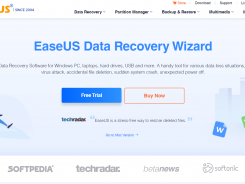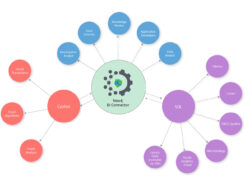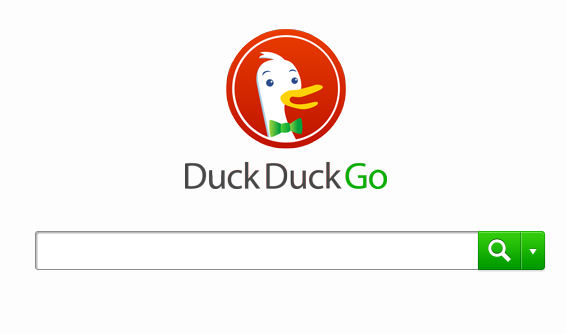What Is DuckDuckGo? An In-Depth Exploration
In an era where data privacy and online surveillance have become growing concerns, DuckDuckGo emerges as a refreshing alternative in the world of search engines. Founded in 2008 by Gabriel Weinberg, this unconventional search engine takes a principled stand on user privacy, setting itself apart from the likes of Google, Bing, or Yahoo. In this comprehensive exploration, we will delve into what DuckDuckGo is, who uses it, how it differs from mainstream search engines, its distinctive features, and the pros and cons that define its place in the digital landscape.
The Birth of DuckDuckGo
Before we dive into the intricacies of DuckDuckGo, it’s essential to understand its origin story. Gabriel Weinberg, the founder of DuckDuckGo, launched the search engine with a clear vision in mind: to offer users a private and secure online search experience. This vision came to fruition in 2008 when DuckDuckGo made its debut, aiming to provide an alternative to search engines notorious for tracking user data and compromising privacy.
What Is DuckDuckGo?
At its core, DuckDuckGo is a search engine, but it is far from being just another one in a crowded field. What sets DuckDuckGo apart is its unwavering commitment to safeguarding user privacy. When you use DuckDuckGo for your online searches, you can rest assured that your search queries will not be stored, tracked, or used to create a profile about you. This fundamental difference places DuckDuckGo in a league of its own, appealing to users who are increasingly concerned about the privacy implications of their online activities.
DuckDuckGo User Statistics
DuckDuckGo’s journey from a niche search engine to a prominent player in the industry has been remarkable. As of my last knowledge update in September 2021, DuckDuckGo had surpassed 100 million daily searches. However, to gain a precise understanding of its current user statistics, one should visit DuckDuckGo’s official website or consult the latest data from reliable sources.
The growing user base of DuckDuckGo indicates a substantial and expanding audience that values privacy and security in their online search activities.
How Is DuckDuckGo Different From Other Search Engines?
To truly appreciate DuckDuckGo’s uniqueness, it’s essential to examine the features that distinguish it from mainstream search engines.
1. No Stored Search History
One of DuckDuckGo’s most notable features is its commitment to user anonymity. Unlike other search engines that record your search history and may use it for various purposes, DuckDuckGo takes a bold stance by not storing any user search history. When you search for information on DuckDuckGo, your queries are not archived, and no trace of your search activity is retained. This approach ensures that your online search behavior remains private and untracked.
2. No Third-Party Trackers
Online tracking is a common practice employed by many websites and search engines to monitor users’ online behavior and serve targeted advertisements. DuckDuckGo, however, staunchly opposes this practice. When you use DuckDuckGo, you are shielded from the prying eyes of third-party trackers that often follow your online movements. By blocking these trackers, DuckDuckGo ensures that your browsing experience remains free from invasive surveillance.
3. Unfiltered Results
DuckDuckGo is committed to providing unfiltered search results. Unlike some mainstream search engines that employ personalized algorithms to tailor search results based on your past behavior and preferences, DuckDuckGo offers results that are not influenced by personalization. This approach ensures that you receive a more objective and diverse range of search results, free from the filter bubble that can limit your exposure to new information.
What Crawler Does DuckDuckGo Use?
While DuckDuckGo stands out for its commitment to privacy, it relies on a diverse array of sources to provide search results to its users. Unlike some search engines that have their web crawlers indexing and retrieving information from websites, DuckDuckGo takes a more collaborative approach.
DuckDuckGo sources its search results from multiple providers, including other search engines like Bing and Yahoo. It combines these results with information from crowd-sourced websites, ensuring that users receive a comprehensive set of search results.
Additionally, DuckDuckGo operates its web crawling software called the DuckDuckBot. While DuckDuckBot plays a role in indexing certain websites, it is not the sole source of search results. This diversified approach allows DuckDuckGo to offer users a broad range of search results while still upholding its commitment to privacy.
Pros And Cons Of DuckDuckGo
As with any tool or service, DuckDuckGo comes with its own set of advantages and disadvantages. Let’s explore these in more detail:
Pros:
1. Privacy First:
DuckDuckGo’s foremost advantage is its unwavering commitment to user privacy. For individuals concerned about online tracking and data collection, DuckDuckGo provides a secure and private search experience.
2. Unbiased Search Results:
By avoiding personalized algorithms and filter bubbles, DuckDuckGo aims to provide unbiased search results. This can be especially appealing to users who want access to a wide range of information without the influence of personalization.
3. No Ads Targeted Based on Search Queries:
Unlike some search engines that use your search queries to serve targeted ads, DuckDuckGo does not engage in this practice. This means that the ads you encounter while using DuckDuckGo are not influenced by your search history.
4. Transparency:
DuckDuckGo is known for its transparency regarding privacy practices. Users can access detailed information on how their data is handled, which adds to the trustworthiness of the platform.
Cons:
1. Smaller Index:
DuckDuckGo’s index, or the number of web pages it has in its database, is not as extensive as that of some major search engines like Google. As a result, it might not always provide as comprehensive search results for certain queries.
2. Less Personalization:
While the absence of personalization is a pro for some users, it can be a con for others. Personalized search results can sometimes be more convenient and efficient, especially for those looking for specific types of information.
In summary, DuckDuckGo is a unique search engine that prioritizes user privacy and provides unfiltered search results. Its pros, including a privacy-first approach and unbiased results, make it an attractive option for privacy-conscious users. However, its cons, such as a smaller index and less personalization, may be considerations for users seeking a different kind of search experience.
Conclusion:
DuckDuckGo’s journey from a privacy-focused startup to a significant player in the search engine industry reflects a growing awareness and concern for online privacy. As the digital landscape continues to evolve, DuckDuckGo stands as a symbol of the ongoing struggle to balance the convenience of online search with the imperative to protect user data.
For users who prioritize their privacy and value an online search experience free from tracking and personalization, DuckDuckGo remains a reliable and trustworthy alternative. As the search engine landscape continues to evolve, DuckDuckGo’s commitment to privacy and unfiltered results ensures that it will always have a place for those who seek a different way to explore the vast expanse of the internet while safeguarding their personal information.
Frequently Asked Questions:
1. What is DuckDuckGo?
– Answer: DuckDuckGo is a privacy-focused search engine that allows users to search the web while safeguarding their privacy. It does not track or store user search history, ensuring a more private and secure online search experience.
2. How does DuckDuckGo make money if it doesn’t track users for ads?
– Answer: DuckDuckGo generates revenue primarily through advertising, just like other search engines. However, it displays ads based on keywords rather than user data, maintaining user privacy. They also offer a premium subscription service called DuckDuckGo Plus, which includes additional features for a fee.
3. Are DuckDuckGo search results as comprehensive as those from Google?
– Answer: DuckDuckGo’s search results may not be as extensive as Google’s because it has a smaller index. However, it often provides relevant and diverse results, making it a suitable choice for many users.
4. Is DuckDuckGo accessible on mobile devices?
– Answer: Yes, DuckDuckGo offers mobile apps for various platforms, including iOS and Android. Users can also set DuckDuckGo as their default search engine in many web browsers, both on desktop and mobile devices.
5. How can I ensure my online privacy with DuckDuckGo?
– Answer: To maximize your online privacy with DuckDuckGo, you can:
– Use DuckDuckGo as your default search engine.
– Install the DuckDuckGo browser extension to block third-party trackers.
– Enable the privacy features provided by your web browser.
– Consider using a virtual private network (VPN) for additional anonymity.
6. Does DuckDuckGo have any advanced search features?
– Answer: Yes, DuckDuckGo offers various advanced search features, including the ability to use specific search commands like “!bangs” to search on other websites directly. For example, “!w” before a search query will take you to Wikipedia’s search results.

















































































